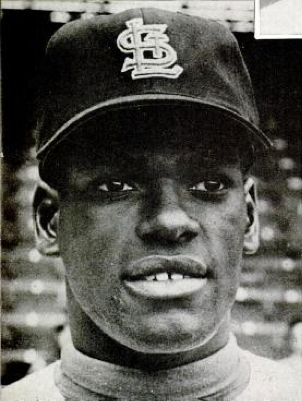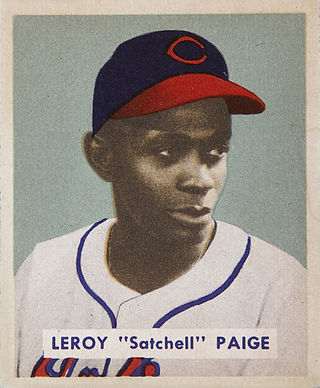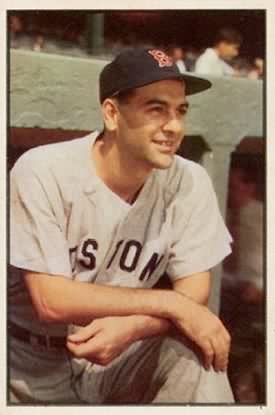
Elections to the Baseball Hall of Fame for 2004 proceeded in keeping with rules enacted in 2001. The Baseball Writers' Association of America (BBWAA) held an election to select from recent players; Dennis Eckersley and Paul Molitor gained induction to the Hall.

Elections to the Baseball Hall of Fame for 2002 proceeded in keeping with rules enacted in 2001. The Baseball Writers' Association of America (BBWAA) held an election to select from among recent players; Ozzie Smith was elected.

Elections to the Baseball Hall of Fame for 1994 followed the system in place since 1978. The Baseball Writers' Association of America (BBWAA) voted by mail to select from recent major league players and elected Steve Carlton. The Veterans Committee met in closed sessions to consider older major league players as well as managers, umpires, executives, and figures from the Negro leagues. It selected two, Leo Durocher and Phil Rizzuto. A formal induction ceremony was held in Cooperstown, New York, on July 31, 1994.

Elections to the Baseball Hall of Fame for 1993 followed the system in place since 1978. The Baseball Writers' Association of America (BBWAA) voted by mail to select from recent major league players and elected Reggie Jackson. The Veterans Committee met in closed sessions to consider older major league players as well as managers, umpires, executives, and figures from the Negro leagues; it selected no one. A formal induction ceremony was held in Cooperstown, New York, on August 1, 1993.
Elections to the Baseball Hall of Fame for 1992 followed the system in place since 1978. The Baseball Writers' Association of America (BBWAA) voted by mail to select from recent major league players and elected two, Rollie Fingers and Tom Seaver. The Veterans Committee met in closed sessions to consider older major league players as well as managers, umpires, executives, and figures from the Negro leagues. It selected two, Bill McGowan and Hal Newhouser. A formal induction ceremony was held in Cooperstown, New York, on August 2, 1992.
Elections to the Baseball Hall of Fame for 1990 followed the system in place since 1978. The Baseball Writers' Association of America (BBWAA) voted by mail to select from recent major league players and elected two, Joe Morgan and Jim Palmer. The Veterans Committee met in closed sessions to consider older major league players as well as managers, umpires, executives, and figures from the Negro leagues. It selected no one. A formal induction ceremony was held in Cooperstown, New York, on August 6, 1990; after being delayed a day due to rain, it was held indoors due to continued bad weather.
Elections to the Baseball Hall of Fame for 1985 followed the system in place since 1978. The Baseball Writers' Association of America (BBWAA) voted by mail to select from recent major league players and elected two, Lou Brock and Hoyt Wilhelm. The Veterans Committee met in closed sessions to consider older major league players as well as managers, umpires, executives, and figures from the Negro leagues. It also selected two players, Enos Slaughter and Arky Vaughan. A formal induction ceremony was held in Cooperstown, New York, on July 28, 1985, with broadcaster Brent Musburger handling introductions and Commissioner of Baseball Peter Ueberroth in attendance.
Elections to the Baseball Hall of Fame for 1984 followed the system in place since 1978. The Baseball Writers' Association of America (BBWAA) voted by mail to select from recent major league players and elected three: Luis Aparicio, Don Drysdale, and Harmon Killebrew. The Veterans Committee met in closed sessions to consider older major league players as well as managers, umpires, executives, and figures from the Negro leagues. It selected two players, Rick Ferrell and Pee Wee Reese. A formal induction ceremony was held in Cooperstown, New York, on August 12, 1984.
Elections to the Baseball Hall of Fame for 1983 followed the system in place since 1978. The Baseball Writers' Association of America (BBWAA) voted by mail to select from recent major league players and elected two, Juan Marichal and Brooks Robinson. The Veterans Committee met in closed sessions to consider older major league players as well as managers, umpires, executives, and figures from the Negro leagues. It selected Walter Alston and George Kell. A formal induction ceremony was held in Cooperstown, New York, on July 31, 1983, with Commissioner of Baseball Bowie Kuhn presiding.
Elections to the Baseball Hall of Fame for 1982 followed the system in place since 1978. The Baseball Writers' Association of America (BBWAA) voted by mail to select from recent major league players and elected two, Hank Aaron and Frank Robinson. The Veterans Committee met in closed sessions to consider older major league players as well as managers, umpires, executives, and figures from the Negro leagues. It selected the second Commissioner of Baseball, Happy Chandler, and former New York Giants shortstop Travis Jackson. A formal induction ceremony was held in Cooperstown, New York, on August 1, 1982, with the current Commissioner of Baseball, Bowie Kuhn, presiding.

Elections to the Baseball Hall of Fame for 1981 followed the system in place since 1978. The Baseball Writers' Association of America (BBWAA) voted by mail to select from recent major league players and elected Bob Gibson. The Veterans Committee met in closed sessions to consider older major league players as well as managers, umpires, executives, and figures from the Negro leagues. It selected Rube Foster and Johnny Mize. Foster would be one of two people from the Negro leagues elected in seventeen years, before introduction of a separate ballot in 1995. A formal induction ceremony was held in Cooperstown, New York, on August 2, 1981, with Commissioner of Baseball Bowie Kuhn presiding.
Elections to the Baseball Hall of Fame for 1980 followed the system in place since 1978. The Baseball Writers' Association of America (BBWAA) voted by mail to select from recent major league players and elected Al Kaline and Duke Snider. The Veterans Committee met in closed sessions to consider older major league players as well as managers, umpires, executives, and figures from the Negro leagues. It selected outfielder Chuck Klein and Boston Red Sox owner Tom Yawkey, both deceased. A formal induction ceremony was held in Cooperstown, New York, on August 3, 1980, with Commissioner of Baseball Bowie Kuhn presiding.

Elections to the Baseball Hall of Fame for 1978 introduced a new system that would continue to 1994. The Baseball Writers' Association of America (BBWAA) voted by mail to select from recent major league players and elected Eddie Mathews. The Veterans Committee met in closed sessions to consider older major league players as well as managers, umpires, executives, and figures from the Negro leagues. It selected Addie Joss and Larry MacPhail. A formal induction ceremony was held in Cooperstown, New York, on August 7, 1978, with Commissioner of Baseball Bowie Kuhn presiding.

Elections to the Baseball Hall of Fame for 1977 followed the system in place since 1971. The Baseball Writers' Association of America (BBWAA) voted by mail to select from recent major league players and elected Ernie Banks. The Veterans Committee met in closed sessions to consider executives, managers, umpires, and earlier major league players. It selected three people: Al López, Amos Rusie, and Joe Sewell. The Negro League Committee also met in person and selected two players, Martín Dihigo and John Henry Lloyd. The Negro League Committee also decided to disband; it had elected nine players in seven years. A formal induction ceremony was held in Cooperstown, New York, on August 8, 1977, with Commissioner of Baseball Bowie Kuhn presiding.
Elections to the Baseball Hall of Fame for 1976 followed the system in place since 1971. The Baseball Writers' Association of America (BBWAA) voted by mail to select from recent major league players and elected two, Bob Lemon and Robin Roberts. The Veterans Committee met in closed sessions to consider executives, managers, umpires, and earlier major league players. It selected three players: Roger Connor, Cal Hubbard, and Freddie Lindstrom. The Negro Leagues Committee also met in person and selected Oscar Charleston. A formal induction ceremony was held in Cooperstown, New York, on August 9, 1976, with Commissioner of Baseball Bowie Kuhn presiding.

Elections to the Baseball Hall of Fame for 1973 followed the system in place since 1971, plus the special election of Roberto Clemente, who had died in a plane crash on New Year's Eve. The Baseball Writers' Association of America (BBWAA) voted by mail to select from recent major league players and elected Warren Spahn. The Veterans Committee met in closed sessions to consider executives, managers, umpires, and earlier major league players. It selected three people: Billy Evans, George Kelly, and Mickey Welch. The Negro Leagues Committee also met in person and selected Monte Irvin. A formal induction ceremony was held in Cooperstown, New York, on August 6, 1973, with Commissioner of Baseball Bowie Kuhn presiding.

Elections to the Baseball Hall of Fame for 1971 featured a new committee on the Negro leagues that met in February and selected Satchel Paige, who spent most of his career in Negro league baseball before joining the Cleveland Indians in 1948, when he was over 40 years old. Controversy arose both over the selection of a pitcher with only 28 major-league victories and about the original plan not to include Negro league players in the main Hall of Fame. In July, officials announced that Paige and future Negro league selections would be included in the main Hall of Fame. Paige was honored alongside other Hall of Fame inductees in August.

Elections to the Baseball Hall of Fame for 1970 followed the system of annual elections in place since 1968. The Baseball Writers' Association of America (BBWAA) voted by mail to select from recent major league players and elected Lou Boudreau. The Veterans Committee met in closed sessions to consider executives, managers, umpires, and earlier major league players. It selected three people: Earle Combs, Ford Frick, and Jesse Haines. A formal induction ceremony was held in Cooperstown, New York, on July 27, 1970, with Commissioner of Baseball Bowie Kuhn presiding.
Elections to the Baseball Hall of Fame for 1968 followed rules revised in June 1967, which returned the Baseball Writers' Association of America (BBWAA) to annual elections without any provision for a runoff. In the event, the BBWAA voted once by mail to select from recent major league players, and elected Joe Medwick. The Veterans Committee met in closed sessions to consider executives, managers, umpires, and earlier major league players. It selected two players, Kiki Cuyler and Goose Goslin. A formal induction ceremony was held in Cooperstown, New York, on July 22, 1968, with Commissioner of Baseball William Eckert presiding.

Elections to the Baseball Hall of Fame for 1966 followed the system introduced for even-number years in 1956. The Baseball Writers' Association of America (BBWAA) voted by mail to select from recent major league players with provision for a second, "runoff" election in case of no winner. Ted Williams tallied more than 90% on the first ballot. Meanwhile, the Veterans Committee was meeting annually to consider executives, managers, umpires, and earlier major league players. It selected Casey Stengel. A formal induction ceremony was held in Cooperstown, New York, on July 25, 1966, with Commissioner of Baseball William Eckert presiding. During his acceptance speech, Williams advocated for the inclusion of Negro league baseball players, such as Satchel Paige and Josh Gibson, in the Hall of Fame. Paige was inducted in 1971, and Gibson in 1972.













